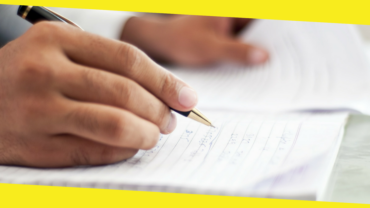Tips to Study Smart
Time – the one insatiable thing that no one seems to get enough of, especially if you are a student! As the exam clock approaches, the fear of completing the syllabus remains at the forefront of our brains. In this article, to help students ease the fear of exams, we unveil a few tips to study smart to make the learning process more fun and less scary!
We’ve heard people say over and over again to “study smarter and not harder.” For many, studying hard seems to mean spending quite a number of hours reading textbooks and notes only to end up more doubtful and confused than when they began. On the other hand, studying smart means to study in a way that helps you remember more with less effort. In the next section, let us look at a few tips to study smart.
How To Study Smart?
The “Theory of Multiple Intelligences” by Howard Gardner, a renowned psychologist, states that intelligence can take seven different forms as follows:
- Visual
- Linguistic
- Logical
- Bodily
- Musical
- Interpersonal
- Intrapersonal
- Naturalistic
These different forms of intelligence are present in all of us but in varying amounts. They work together to develop how we absorb information. To understand this better, think of that one kid who is proficient in English (high linguistic intelligence) but is poor at math (low logical intelligence). Knowing how your brain works affect the study techniques that suit the best for you. Thus, it is essential to study smarter with techniques that work well for you, rather than stubbornly staring at that math problem without even knowing where to start.
Make Use of Flashcards to Remember Formulas and Law
Write down all the important formula and laws like the Laws of Thermodynamics on flashcards. You can carry them with you wherever you go aiding you to study on the go! Take out flashcards and look them over whenever you have a spare moment. This helps you to study in small increments. You will be surprised at the time of the test to know how much you know with little effort.
Test Yourself
Many believe that too many exams force teachers to “teach for tests” and squeeze the creativity. But if done right, it can be a useful tool. Researches show that testing yourself can strengthen your long-term learning. Testing yourself often helps you remember the material on the day of the final exam. The applications of important laws such as Kirchhoff’s law and Ohm’s law is used from simple circuits to complex circuits. To know how to apply them on various circuits, you need to practise consistently and test yourself regularly to fully understand its application.
Take Frequents Breaks and Good Diet
Take regular breaks while studying because it improves focus and enhances productivity. Take a break of 10 -15 minute every 40 – 50 minutes that you study. It can involve walking around your room or just deep breathing.
Keep yourself hydrated and eat as healthy as possible. Make sure to munch on a lot of nuts and brain foods and nourish your brain.
Don’t feel overwhelmed reading this long article because there is no hurry to implement all of the tips mentioned here at once. Well, how do you eat an elephant? One bite at a time…Similarly, focus on one tip at a time. Once you have turned that tip into a habit, move on to the next one. Most importantly, remember that education is not about getting straight A’s, it is about the pursuit of excellence, cultivating your strengths and learning and growing from it, so you can contribute more effectively. All the Best!
Recommended For You
Buy An Essay Online
Most Inside
Most Inside offers high-quality recommendations and valuable updates to enhance all aspects of your life, providing premium guidance and enriching experiences.





